Carnivore, Herbivore, Omnivore KS1 Poster by PlanBee

carnivore, herbivore, omnivore game Science Lessons, Science Activities, Cycling Food
Herbivores, organisms that consume plants and other autotrophs, are the second trophic level. Both omnivores and carnivores, meat eaters, are the third trophic level.
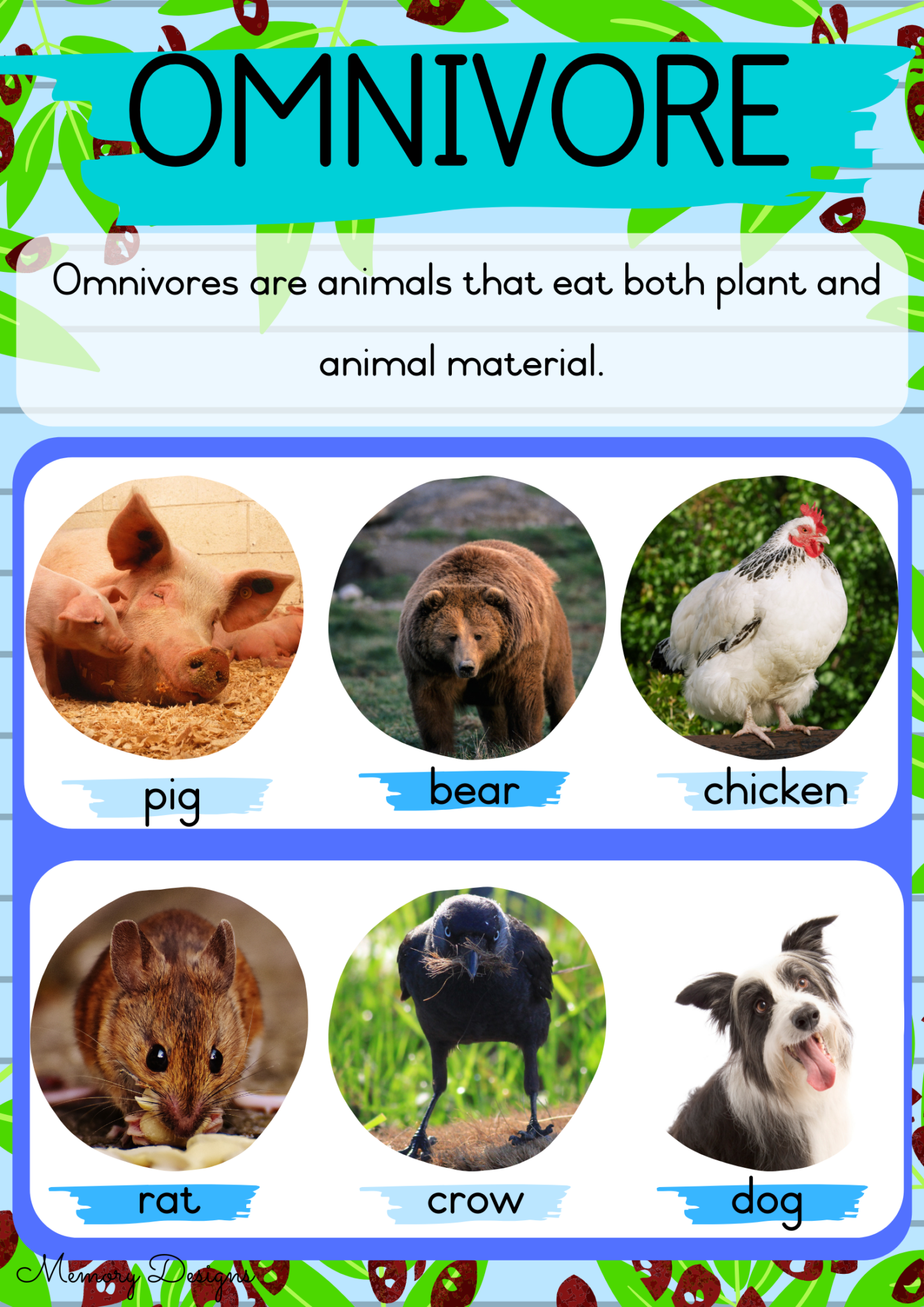
Herbivore, omnivore and carnivore • Teacha!
The main difference between Herbivores Carnivores and Omnivores is their food type. Herbivores are the animals that rely only on plant materials, and carnivores rely only on meat. Omnivores are the animals that prefer to eat both meat and plant matter.
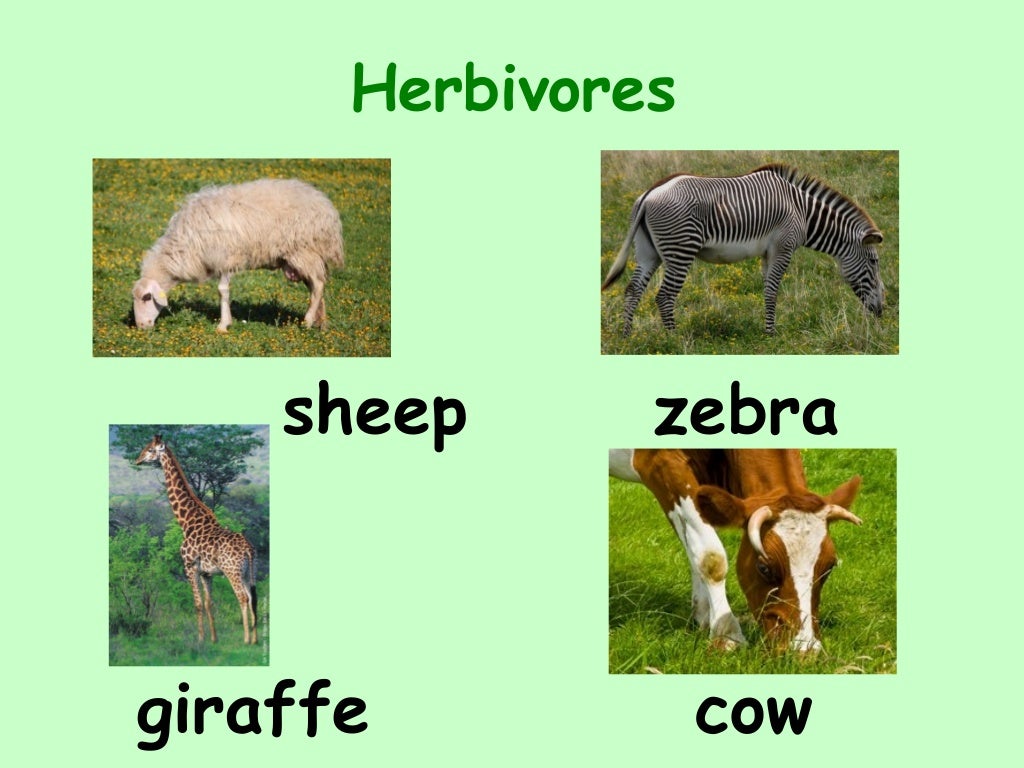
Carnivores herbivores omnivores with examples
Book: General Biology (Boundless) 34: Animal Nutrition and the Digestive System
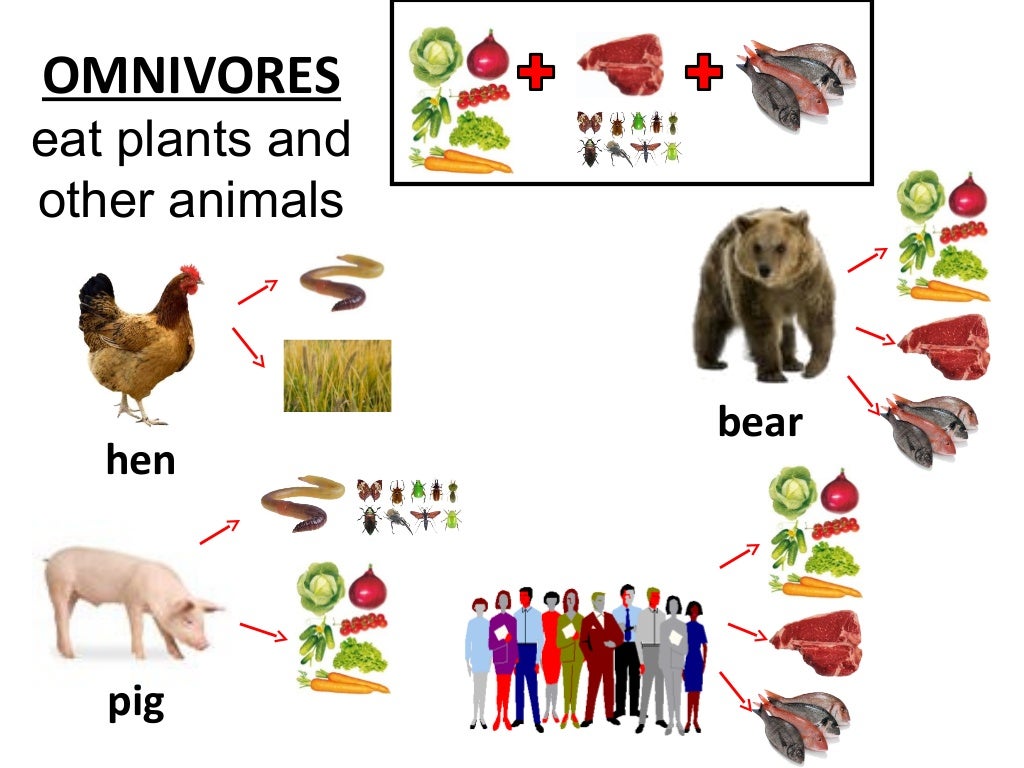
Herbivores,carnivores and omnivores
… Joo-Hong Yeo Show authors Genome Biology 17, Article number: 211 ( 2016 ) Cite this article 33k Accesses 70 Citations 127 Altmetric Metrics Abstract Background There are three main dietary groups in mammals: carnivores, omnivores, and herbivores.
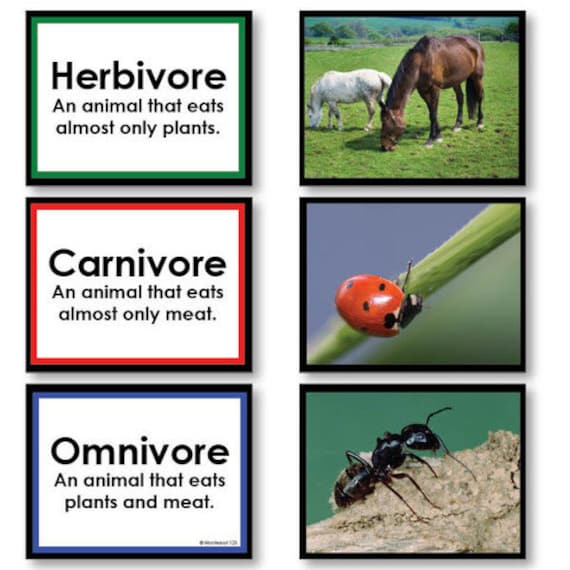
Herbivore Omnivore Carnivore Sorting Game Etsy
24.3: Herbivores, Carnivores, and Omnivores. Herbivores are animals whose primary food source is plant-based. Examples of herbivores, as shown in Figure 1 include vertebrates like deer, koalas, and some bird species, as well as invertebrates such as crickets and caterpillars.

Nutrition in Animals (Class 10) Essential Nutrients & their function
Definitions in the Field: Herbivore/Carnivore/Omnivore Everything - mammals, reptiles, insects, and birds - needs to eat! What they eat puts them into one of three categories: herbivore, carnivore, and omnivore. National Geographic Explorer and lion conservationist Paola Bouley breaks these terms down into bite-size pieces. Grades 5 - 8 Subjects

Herbivores Carnivores And Omnivores, Herbivores Carnivores Omnivores Worksheet Turtle Diary
Omnivores, creatures that consume a wide variety of organisms from plants to animals to fungi, are also the third trophic level. Autotrophs are called producers, because they produce their own food. Herbivores, carnivores, and omnivores are consumers. Herbivores are primary consumers. Carnivores and omnivores are secondary consumers.
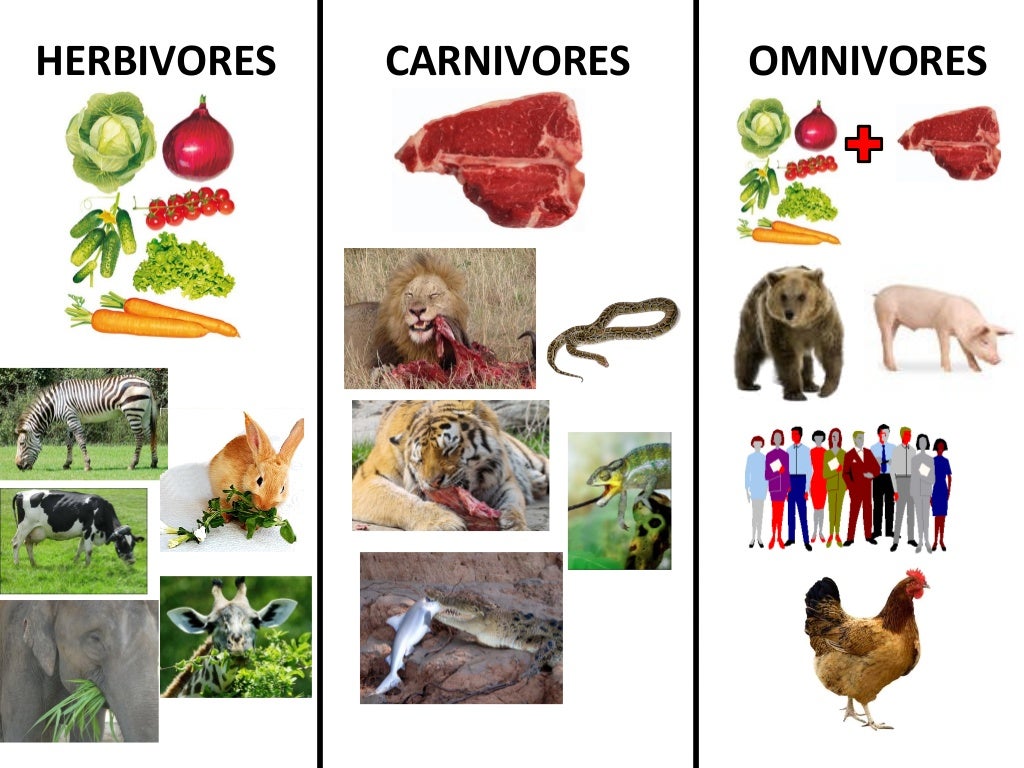
Herbivores, carnivores and omnivores
See the fact file below for more information on Herbivores, Carnivores, and Omnivores or alternatively, you can download our 29-page Herbivores, Carnivores, and Omnivores worksheet pack to utilise within the classroom or home environment. Key Facts & Information Herbivores. Animals that eat only plants and plant products are called herbivores.

KS1 Carnivore, Omnivore, Herbivore sorting Teaching Resources
Herbivores, Carnivores, Omnivores introduces students to the three diets that animals can have. Students will define the three terms and be able to explain how they differ from each other. They will also be able to name examples of animals that follow each diet.

SPS Year 2 Carnivores, Herbivores and Omnivores
An omnivore ( / ˈɒmnɪvɔːr /) is an animal that has the ability to eat and survive on both plant and animal matter. [3] Obtaining energy and nutrients from plant and animal matter, omnivores digest carbohydrates, protein, fat, and fiber, and metabolize the nutrients and energy of the sources absorbed. [4]
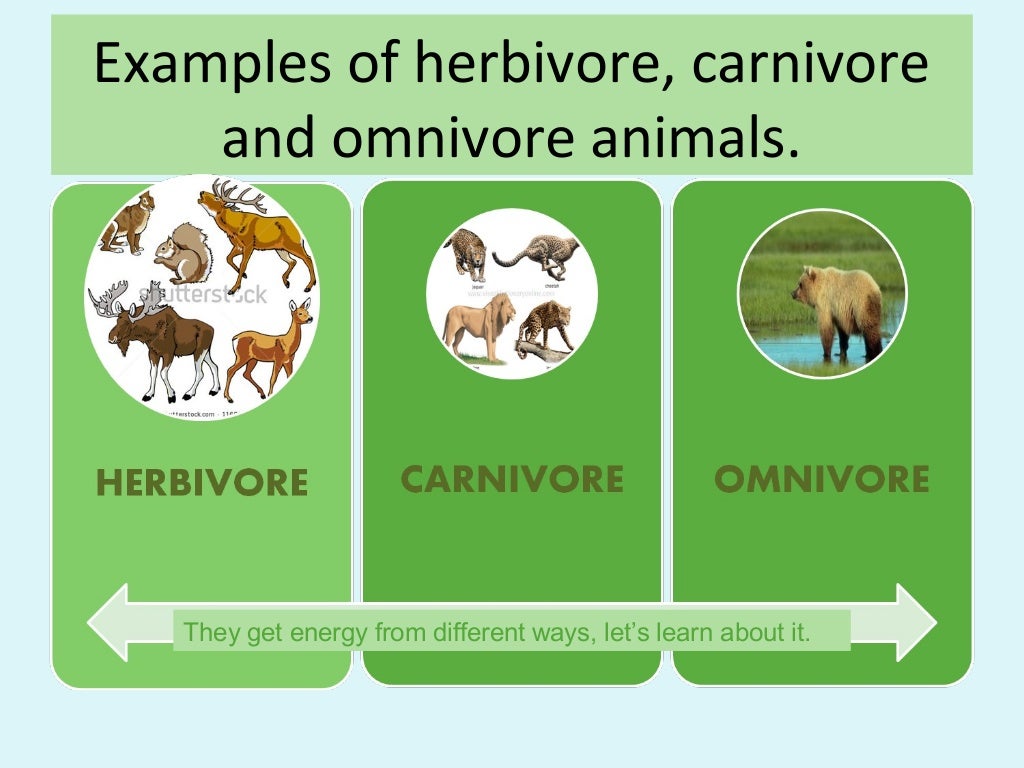
Herbivore, carnivore and omnivore animals
Do you know the difference between herbivores, carnivores, and omnivores? Do you know which one you are? In this video for kids, you will learn all about the.

Carnivore, Herbivore, Omnivore Montessori
What types of food do carnivores, omnivores and herbivores eat? - BBC Bitesize KS1 What types of food do animals eat? Part of Science Animals including humans Remove from My Bitesize Animals.

Omnivore, Carnivore, Herbivore YouTube
Herbivores On the opposite end of the dietary food chain from carnivores is the herbivore. Although herbivores can sometimes be seen eating live foods, the proper diet for an herbivore consists of plants, algae, and fruits. They have no true stomach; instead, they possess a specialized intestine that is capable of breaking down plant matter.
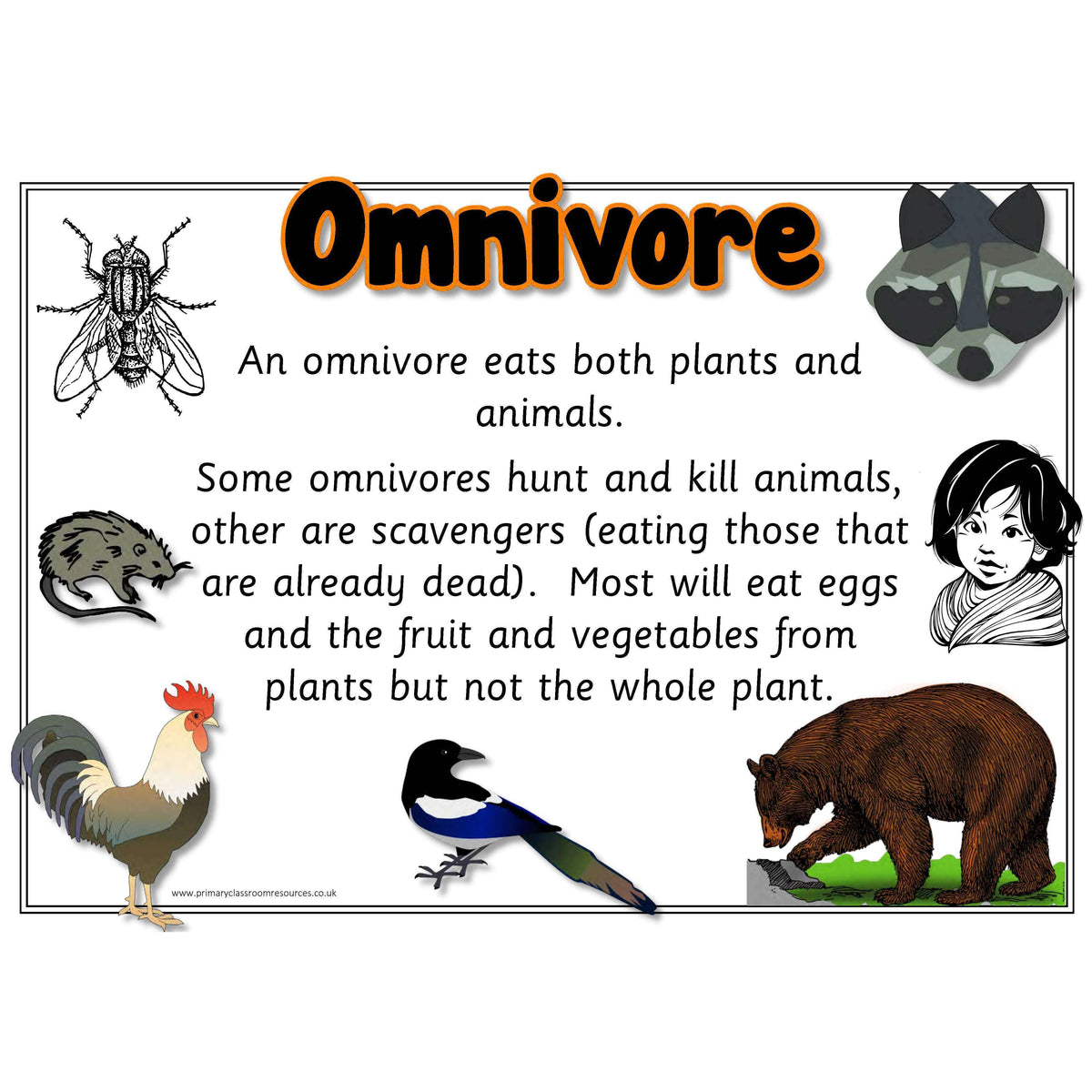
Carnivore Herbivore Omnivore Display Set Primary Classroom Resources
Updated November 22, 2019 By Monty Dayton Animals fall into three distinct groups based upon what they eat. This is a natural way to often group animals. Plant eaters are herbivores, meat eaters are carnivores, and animals that eat both plants and animals are omnivores.

Carnivore, Herbivore, Omnivore KS1 Poster by PlanBee
Learn about animal diets! Different animals eat different foods. In this video, we will learn all about the different food certain animals eat! Can you think.
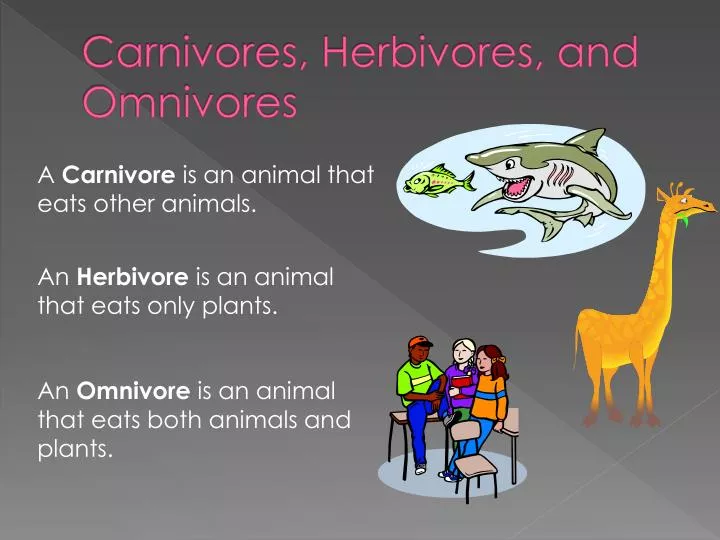
PPT Carnivores, Herbivores, and Omnivores PowerPoint Presentation, free download ID5383483
Carnivores, organisms that consume animals, and omnivores, organisms that consume both plants and animals, are the third trophic level. Autotrophs are called producers, because they produce their own food. Herbivores, carnivores, and omnivores are consumers. Herbivores are primary consumers. Carnivores and omnivores are secondary consumers.